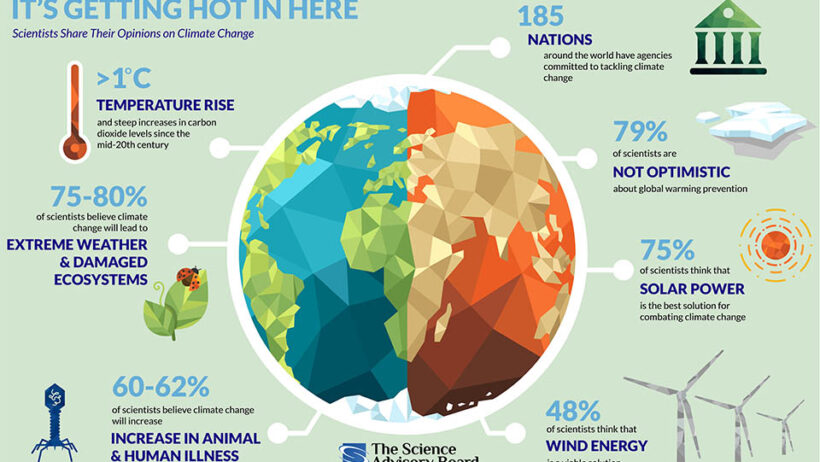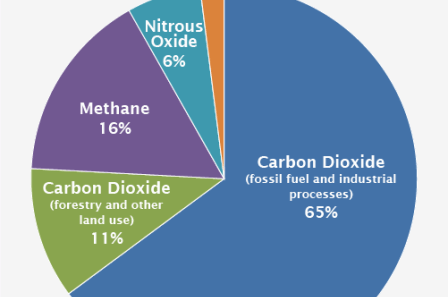The dialogue surrounding climate change has burgeoned into a quintessential discourse of our time, necessitating a reassessment of both human habits and technological advancements. The inquiry into whether science can indeed save us from the devastating effects of climate change presents multifaceted layers requiring exploration. Humanity’s collective response is not merely reactionary but underpinned by a deep fascination with the bounds and capabilities of scientific inquiry.
At the heart of this conundrum is the urgent need to understand climate change as a result of anthropogenic actions. The accumulation of greenhouse gases in the atmosphere, precipitated by industrialization, deforestation, and unsustainable agricultural practices, requires an urgent recalibration of our approach to environmental governance. This understanding has catalyzed a global response involving scientists, policymakers, grassroots organizations, and the general populace, all striving towards a reusable planet.
Scientific advancements have a pivotal role to play in mitigating the repercussions of climate change. Renewable energy technologies, such as solar, wind, and hydroelectric power, are now crucial pillars of the strategy to decouple energy production from fossil fuel dependency. The proliferation of these technologies signifies a shift in energy paradigms, challenging the supremacy of traditional sources. Solar panels, once a niche market, are becoming ubiquitous, illuminating a sustainable path forward.
Moreover, the advent of carbon capture and storage (CCS) technologies offers remarkable promise. By capturing CO2 emissions emitted from industrial processes and sequestering them underground, we can attenuate the quantity of greenhouse gases in the atmosphere. This proactive approach not only addresses existing pollution but also seeks to create a buffer against future emissions. Nevertheless, the efficacy of these technologies is contingent upon substantial investment and innovative engineering solutions to make them economically viable.
But technology extends beyond energy solutions. In the realm of agriculture, scientists are spearheading initiatives aimed at developing climate-resilient crops. Through genetic modification and selective breeding, researchers are crafting varieties better suited to withstand extreme weather conditions, such as droughts and floods. Such endeavors do not merely safeguard food security but endeavor to bolster the resilience of ecosystems, fostering a symbiotic relationship between agriculture and environmental health.
Furthermore, the role of environmental monitoring technologies is incommensurable. Satellite imagery and remote sensing technologies provide unparalleled data, enabling us to scrutinize land-use changes, deforestation rates, and ocean temperatures. By harnessing big data analytics, researchers can draw correlations and develop predictive models that inform climate policies. These modes of scientific inquiry elevate our capacity to understand climate dynamics, thereby facilitating informed decision-making across all sectors.
However, the conversation must transcend the mere reliance on technology. The social and political dimensions of climate action are intrinsically interwoven with scientific advancements. Environmental policy must evolve alongside scientific understanding. Formulating comprehensive policies that integrate scientific findings into actionable frameworks is imperative. Policymakers must grapple with the complexities of governance, economic incentives, and social equity. This multidimensional approach is essential, as environmental justice dictates that the burdens of climate change disproportionately affect marginalized communities.
Education forms the bedrock of a scientifically informed populace. Cultivating an awareness of climate change implications through robust educational initiatives is paramount. By fostering an understanding of the science behind climate change, individuals can engage more effectively in advocacy. Grassroots movements, bolstered by scientific literacy, can exert palpable pressure on political leaders to enact necessary changes. This democratization of knowledge empowers communities to prioritize sustainability in their local contexts.
Furthermore, international cooperation is crucial in combating climate change on a global scale. TheParis Agreement serves as a seminal framework for collaboration among nations to reduce greenhouse gas emissions. However, success hinges upon the commitment of individual states to enforce and uphold stringent policies. The notion of climate diplomacy has emerged, wherein nations engage in negotiations and share best practices. This intergovernmental collaboration underscores a collective responsibility to safeguard planetary health.
Scientific endeavors can also extend into the realm of social innovation. Strategies to reduce waste, such as circular economies and sustainable consumption patterns, can help mitigate environmental degradation. By incentivizing businesses to adopt sustainable practices and encouraging individuals to minimize their ecological footprints, society can pivot toward systematic change. This approach acknowledges the philosophical axiom that prevention is better than cure, emphasizing the need for proactive rather than reactive solutions.
Despite the potential offered by science, skepticism remains prevalent. Some argue that the technological fixes will be insufficient to reverse the damage wrought by centuries of environmental neglect. The moral imperative calls for not only a shift in technology but also a transformation in mindset. The challenge lies in reconciling our modern desires and consumption patterns with the imperatives of sustainability.
As the global community traverses this critical juncture, the commitment to a cleaner, more sustainable future hinges on a profound understanding of the symbiosis between scientific advancement and collective action. While science presents solutions that can substantially mitigate climate change, it is the amalgamation of technological, social, political, and educational initiatives that will forge the most effective path forward. One must acknowledge that saving our planet involves an intricate tapestry of efforts—one that demands synergy across disciplines and stakeholders.
In conclusion, the relentless pursuit of scientific solutions must be coupled with an unwavering commitment to systemic change. As we delve deeper into this profound socio-ecological crisis, the intrinsic value of collaboration emerges as a beacon of hope. Only through concerted efforts, informed by science and driven by a collective spirit, can humanity endeavor to combat climate change effectively. The legacy we leave for future generations will undoubtedly depend upon the actions we take today.








